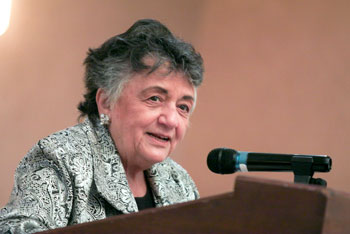 Residency Programs for Lawyers: A New Model?
Residency Programs for Lawyers: A New Model?
The mega international law firm Greenberg Traurig recently launched a “lawyer residency program.” New lawyers spend one-third of their time getting trained, are compensated considerably less than regular associates, and bill at lower rates.
When the new lawyers finish the program, and depending on performance, the firm may hire “residents” as traditional associates or non-partnership track “practice group attorneys.” Above the Law reports that this type of program could help lawyers who want to start their own practices, and others say residency programs could help fill the access to justice gap.
This is precisely what Rutgers Law School Dean John Farmer Jr. recommended in a New York Times op-ed in early 2013: “We need, at its entry level, the equivalent of a medical residency. Law school graduates would practice for two years or so, under experienced supervision, at reduced hourly rates; repaying their debts could be suspended, as it is for medical residents.”
Good idea?
By the Numbers: 33,673
The number of individuals who took the LSAT exam nationwide in October. This is just under half (45 percent) of the 60,746 people who took the exam in October 2009, which marked an historic high.
 Since 2009, the number of LSAT test takers has declined for four straight years. According to the Wall Street Journal’s Law Blog, the number of October test takers has not dipped this low since 1998.
Since 2009, the number of LSAT test takers has declined for four straight years. According to the Wall Street Journal’s Law Blog, the number of October test takers has not dipped this low since 1998.
“The figures are the latest sign that the law school bubble hasn’t stopped deflating,” according to reporter Jacob Gersham.
Tech Tip: What’s Under the Tree this Holiday Season?
Tablets are again at the top of the gift-giving list this holiday season. First-time tablet buyers have more options than ever before with the fall launch of Apple’s new iPad Air and iPad Mini with Retina Display.
Apple’s iPad Air is on many people’s must-have list with its even thinner and lighter design, and the new iPad Mini with Retina Display is the luxury tablet of the season.
However, the iPad Mini is fighting for market share with a number of other great competitors, which cost less, such as the Kindle Fire HDX 7”, Samsung Galaxy Tab 3 7” and 8” models, as well as the Galaxy Note 8”.
Don’t overlook Windows 8 tablets. There are several new ones on the market that are worth considering, such as Dell’s 8” Venue or Lenovo Mix 2, both running full Windows 8.1 with a list price of $299, which is significantly less than the iPad Mini.
Then there’s Sony’s new Sony VAIO Tap 11 that includes a magnetic cover and stylus and the new Lenovo IdeaPad Yoga in both 11” and 13” models.
 Source: Nerino Petro, State Bar of Wisconsin practice management advisor
Source: Nerino Petro, State Bar of Wisconsin practice management advisor
Quotable: “No decision a judge makes is more important than the decision about whether to sit on the case.”
Shirley Abrahamson, chief justice of the Wisconsin Supreme Court, in her 2013 State of the Judiciary Address delivered last month.
The chief justice was talking about judicial recusal, and how sums spent on judicial elections “raise issues of the appearance of partiality and recusal standards.” She talked about initiatives to address recusal and judicial independence.
 From the Archives: Marshall Rising
From the Archives: Marshall Rising
December marks the birthday of Roujet Marshall, Wisconsin’s most famous judicial conservative. Marshall was truly a self-made man. Born into a poor farm family in 1847, he taught himself law and set up practice in Chippewa Falls.
Hard work and a meeting with lumber baron Frederick Weyerhaeuser brought him fame, fortune, and in 1895, a Wisconsin Supreme Court seat.
Between 1900 and 1918, Marshall frequently crossed swords with Chief Justice John Winslow, who favored flexible constitutional interpretation in order to uphold Progressive reform laws. Marshall was no reactionary. He helped shape Wisconsin’s worker’s compensation law, a centerpiece of the Progressive program – but he warned against bending the constitution to suit the times. Marshall proved a worthy intellectual adversary to Winslow.
Source: Jay Ranney, Madison lawyer and legal historian
 Out There: %$&# You! Nuisance or Freedom of Speech?
Out There: %$&# You! Nuisance or Freedom of Speech?
A woman in Michigan may soon be suing her ex-husband, who bought the neighboring lakefront home and erected a statue on his back porch, directed at his ex-wife’s house. The statue is large, lights up at night, and depicts a human hand with middle finger extended, otherwise known as “giving the finger.” Apparently, the divorce was not amicable.
One legal commentator, Jonathan Turley at Res Ipsa Loquitur, says the case “raises an interesting question of aesthetic nuisance.” But what about the right to free speech? The lawyers will likely haggle over this one, and we’ll be watching.
